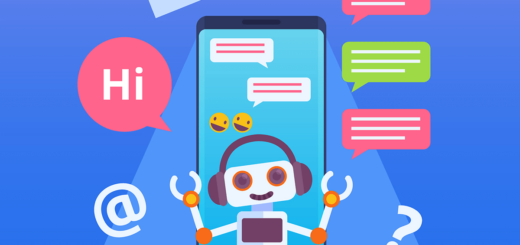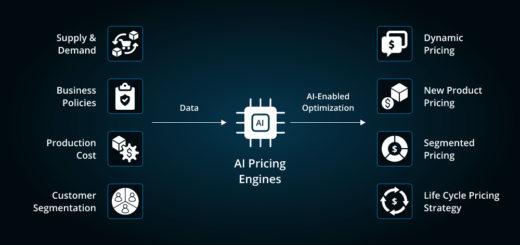AI-Powered Coding Assistants Reshape Software Development in Business

Writing code has traditionally been the domain of highly skilled software engineers, requiring years of experience and expertise. However, the introduction of AI-powered coding assistants is rapidly transforming this landscape. In September 2022, GitHub Copilot officially moved beyond its preview phase into widespread adoption, while OpenAI launched an improved version of its Codex model, pushing AI-assisted coding to new levels of efficiency and accuracy.
For businesses, this shift is not just about improving developer productivity. It represents a fundamental change in how software is created, who can contribute to development, and how companies approach their technology needs. AI-powered coding tools are democratizing software development, enabling non-programmers to participate, reducing development time, and lowering barriers for startups and enterprises alike.
How AI is Enhancing Software Development for Businesses
AI-assisted coding tools such as GitHub Copilot and OpenAI Codex leverage machine learning to suggest code completions, detect errors, and even generate entire functions based on natural language descriptions. These advancements allow businesses to:
- Accelerate development cycles – AI-generated code speeds up the writing process, reducing time spent on repetitive coding tasks.
- Improve code quality – AI helps catch errors before execution, minimizing bugs and security vulnerabilities.
- Lower entry barriers for non-developers – Business analysts, product managers, and other professionals can now contribute to software projects using AI-generated code snippets.
With the release of enhanced versions of these tools in September 2022, AI-powered coding reached a new milestone, offering greater contextual understanding, improved accuracy, and expanded language support.
Real-World Business Applications of AI-Powered Coding
Businesses across industries are integrating AI-assisted coding into their workflows to streamline operations, reduce costs, and increase agility.
1. Startups and Small Businesses Gaining a Competitive Edge
- Many early-stage startups lack the resources to hire full-scale engineering teams. AI coding tools help smaller teams build functional software with fewer developers.
- Rapid prototyping becomes more accessible, allowing entrepreneurs to quickly test ideas and iterate without extensive technical expertise.
2. Large Enterprises Scaling Development More Efficiently
- Corporations with large-scale software projects use AI to automate boilerplate code, refactor outdated systems, and improve documentation.
- AI-powered coding assistants reduce the workload for senior engineers, enabling them to focus on architecture and innovation rather than routine coding tasks.
3. AI in No-Code and Low-Code Platforms
- Businesses integrating AI-powered coding with low-code and no-code solutions enable faster application development by non-technical teams.
- AI-generated scripts and automation tools bridge the gap between fully manual coding and drag-and-drop software solutions.
The widespread adoption of these tools suggests that AI-powered coding is not just a productivity booster—it is redefining how software is developed in modern businesses.
Challenges and Considerations for AI-Generated Code in Business
While the benefits are significant, AI-powered coding also introduces new challenges and concerns for companies looking to integrate these tools into their development pipelines.
1. Code Accuracy and Reliability
- AI-generated code is not always perfect and may contain errors, inefficiencies, or security risks.
- Developers must remain actively involved in reviewing, testing, and optimizing AI-suggested code before deploying it in production environments.
2. Intellectual Property and Legal Implications
- As AI coding assistants generate code based on vast datasets, concerns arise regarding potential copyright issues and whether AI-produced code infringes on existing intellectual property.
- Businesses must ensure compliance with legal and ethical standards when integrating AI-generated solutions.
3. Ethical Considerations and Workforce Adaptation
- The increasing use of AI in software development raises questions about job displacement for junior developers.
- However, rather than replacing engineers, AI coding tools are shifting their focus towards higher-level problem-solving, debugging, and software architecture.
Addressing these concerns will be critical in ensuring AI-assisted coding remains a valuable and ethical tool for business innovation.
Looking Ahead: The Future of AI-Powered Software Development
With AI-powered coding assistants becoming more advanced, the future holds exciting possibilities:
- Fully autonomous AI-driven software development – AI may eventually be able to build entire applications with minimal human intervention.
- AI-powered debugging and security analysis – AI tools will improve in detecting vulnerabilities, ensuring safer and more secure code.
- Deeper AI integration with enterprise development workflows – Companies will combine AI-generated code with automated testing, CI/CD pipelines, and DevOps practices for seamless software deployment.
By September 2022, businesses had already started leveraging these advancements, and the trend showed no signs of slowing down. Companies that embrace AI-assisted development early will gain a significant advantage in agility, cost efficiency, and innovation.
Final Thoughts: A New Era in Business Software Development
The release of GitHub Copilot’s full version and OpenAI’s updated Codex model in September 2022 signaled a new chapter for AI in software engineering. These tools are not just making coding faster—they are reshaping who can develop software and how businesses approach technology solutions.
Companies that integrate AI-powered coding assistants strategically will unlock new efficiencies, reduce development barriers, and stay ahead in an increasingly software-driven world. The impact of AI in coding is just beginning, and businesses that adapt now will be at the forefront of this transformation.




